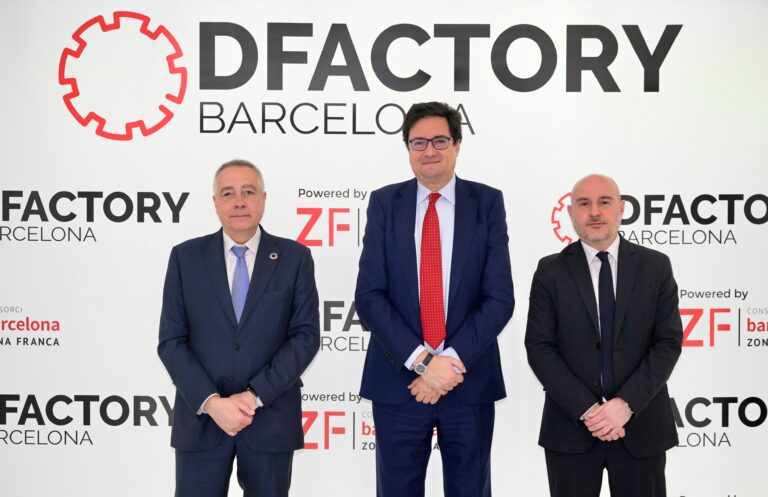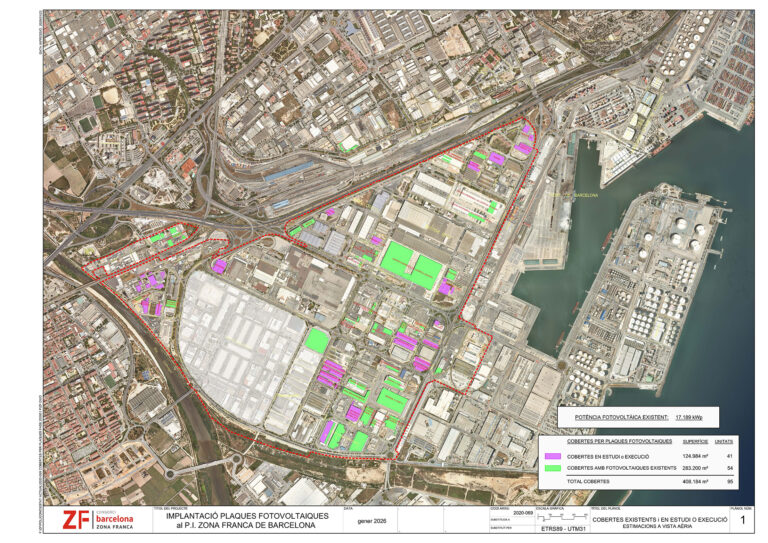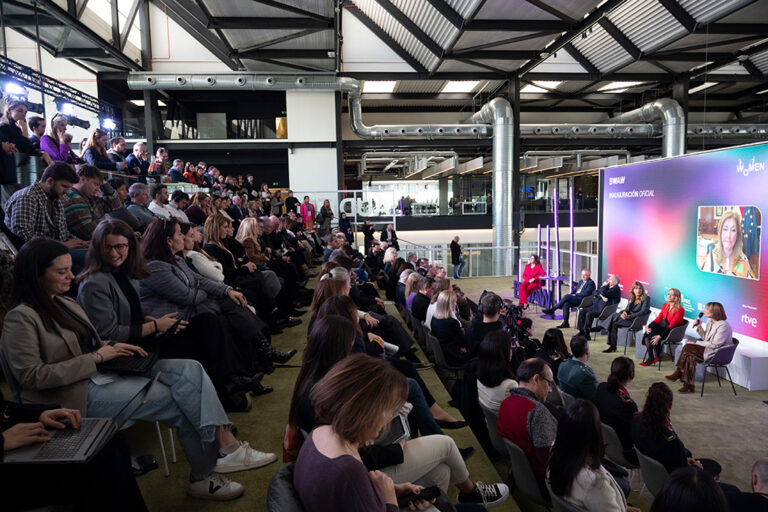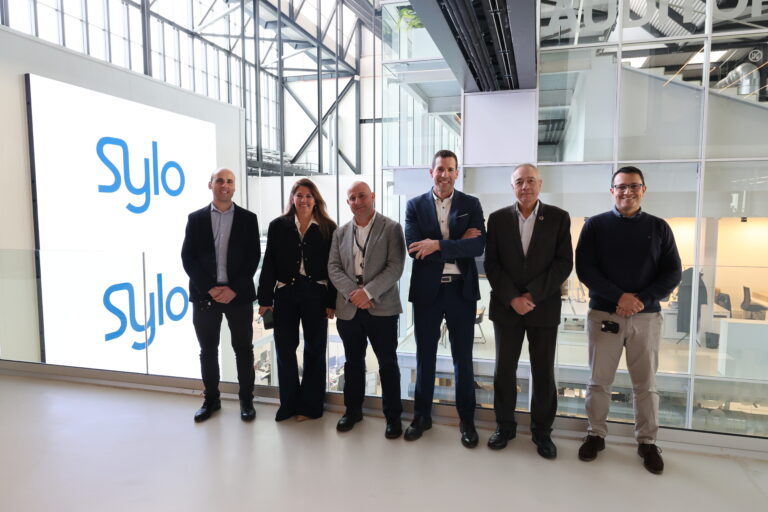The Minister for Digital Transformation and the Civil Service, Óscar López, highlights that Spain is at the forefront of digital transformation

6 de February de 2025
- Óscar López has emphasized that “Spain is making the greatest example of public-private collaboration in history to ensure Spain is at the forefront of digitalization, cybersecurity, and AI”.
- Accompanied by the special state delegate in CZFB, Pere Navarro, and the government delegate in Catalonia, Carlos Prieto, the minister visited DFactory Barcelona and learned firsthand about the activities of some of the companies in the country’s largest industry 4.0 ecosystem.
- Zona Franca de Barcelona concludes the ZF Innovative Ecosystem Day with the participation of 300 attendees, fostering synergies between local companies to develop transformative projects.
Barcelona, 6 February 2025.- The Minister for Digital Transformation and the Civil Service of the Government of Spain, Óscar López, opened the second and final day of the ZF Innovative Ecosystem, organized by the Consorci de la Zona Franca de Barcelona (CZFB) with the collaboration of AMEC. These days, which took place yesterday and today at DFactory Barcelona, served to present various innovation initiatives being promoted in this important area of economic activity, while also facilitating active networking among companies and entities located in the industrial estate of the Zona Franca, DFactory Barcelona, and startup incubators operating in the fields of industry 4.0 and 3D printing.
During his speech, Óscar López highlighted that “Spain is providing the greatest example of public-private collaboration in history to be at the forefront of digitalization, cybersecurity, artificial intelligence, and supercomputing”.
The Minister for Digital Transformation and the Civil Service of the Government of Spain also noted that “Spain has missed many trains, but not the technological revolution. From the Ministry, we are allocating 1 in every 3 euros of European funds to digital transformation. This is concreted, for example, in the Digital Kit programme, which has already reached more than 600.000 SMEs in the country, with the aim of digitalizing their business. The aid is processed in 3 minutes thanks to artificial intelligence and automation”.
Subsequently, Óscar López visited DFactory Barcelona, the industry 4.0 ecosystem promoted by the Consorci de la Zona Franca de Barcelona, which has already become an international benchmark fostering collaboration between companies, incorporating specialized talent, and converging new technologies that support technological and economic development in society. López highlighted that “DFactory Barcelona is the best example of how the digital revolution is being forged in our country, a transformation that goes hand in hand with both the public and private sectors”.
The Minister for Digital Transformation and the Civil Service was accompanied during the visit by the special state delegate in CZFB, Pere Navarro, and the government delegate in Catalonia, Carlos Prieto, who showed him the activities of the 35 companies located in DFactory Barcelona. These companies are involved with robotics, 3D printing, AI, Blockchain, cybersecurity, augmented and virtual reality, nanotechnology, and more. Similarly, Navarro explained the planned expansion project for DFactory Barcelona, which will initially increase the existing 17.000 m2 by an additional 40.000 m2, reaching nearly 60.000 m2. In this regard, Pere Navarro explained that “we are already starting the entire process to carry out the first expansion of DFactory to avoid missing opportunities, as the companies we currently have are growing rapidly and need more space than we currently have available. We expect to have this first expansion completed by the end of next year”.
An innovation dynamic to conclude
The ZF Innovative Ecosystem Day concluded with the attendance of 300 professionals from companies operating in the Free Trade Zone of Barcelona. Today, a session was held where the main challenges facing the current industry were addressed, while an innovation dynamic was carried out, where different groups worked to find innovative solutions. These dynamics were framed within four verticals (logistics 4.0, technology in industry, sustainability, and new professional profiles), allowing attendees to take advantage of this opportunity to share ideas and solutions with other participants, while they have to generate new opportunities for collaboration with other companies in this community and the Free Zone.



